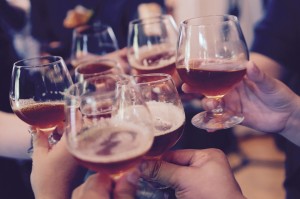The holiday season is a time of celebration, family gatherings, and festive cheer. However, for those committed to staying sober, it can also present unique challenges. Alcohol and other substances are often a central part of holiday festivities, making it essential to have strategies in place to navigate these situations while maintaining your commitment to sobriety.
1. Plan Ahead and Set Boundaries
Before attending any holiday event, plan how you will handle offers of alcohol or other substances. It can be helpful to have a rehearsed response ready, such as, “No, thank you, I’m not drinking tonight.” Setting clear boundaries with yourself and others can prevent uncomfortable situations. Don’t hesitate to inform hosts of your sobriety journey if you feel comfortable; they may be more supportive than you expect.
Read more: Staying Sober During the Holidays: Tips for a Joyful Season2. Bring Your Own Non-Alcoholic Drinks
Having a non-alcoholic beverage in hand can deter offers of alcohol and help you feel more at ease. Many companies now offer sophisticated non-alcoholic options, from sparkling waters to alcohol-free wines and beers. Bringing your own drinks ensures you have something enjoyable to sip on throughout the event.
3. Focus on the Experience
Shift your focus from what you’re abstaining from to what you’re gaining. The holidays offer a chance to connect deeply with loved ones, appreciate meaningful traditions, and create lasting memories. Engage fully with conversations, activities, and the joy of the season.
4. Lean on Your Support Network
Reach out to friends, family, or support groups who understand your journey and the challenges you face in staying sober during this time. They can offer encouragement and accountability. Consider attending a meeting or connecting virtually with others who are also navigating sobriety during the holidays.
5. Practice Self-Care
The holidays can be stressful, so taking care of your mental and physical health is crucial. Prioritize activities that bring you joy and relaxation, whether it’s exercising, meditating, or spending time in nature.
6. Celebrate Your Achievements
Every day of sobriety is a significant accomplishment. Celebrate your progress and resilience. Reflect on how far you’ve come and the positive changes in your life since embracing sobriety.
7. NAD+ Booster
Reboot with an NAD+ booster to help keep your physical and mental fortitude at its strongest.
By planning ahead and focusing on the joys of the season, you can enjoy a fulfilling and sober holiday season, creating new traditions and memories that resonate with your commitment to a healthy lifestyle.
 ncreases during the holiday season. This can be particularly worrisome for those who are new to recovery or whose loved ones are in recovery. Though there are many different ways that people relapse, we’ve highlighted some key ones below. Here are some signs to look for if you’re concerned about you or your loved one in recovery.
ncreases during the holiday season. This can be particularly worrisome for those who are new to recovery or whose loved ones are in recovery. Though there are many different ways that people relapse, we’ve highlighted some key ones below. Here are some signs to look for if you’re concerned about you or your loved one in recovery. 





